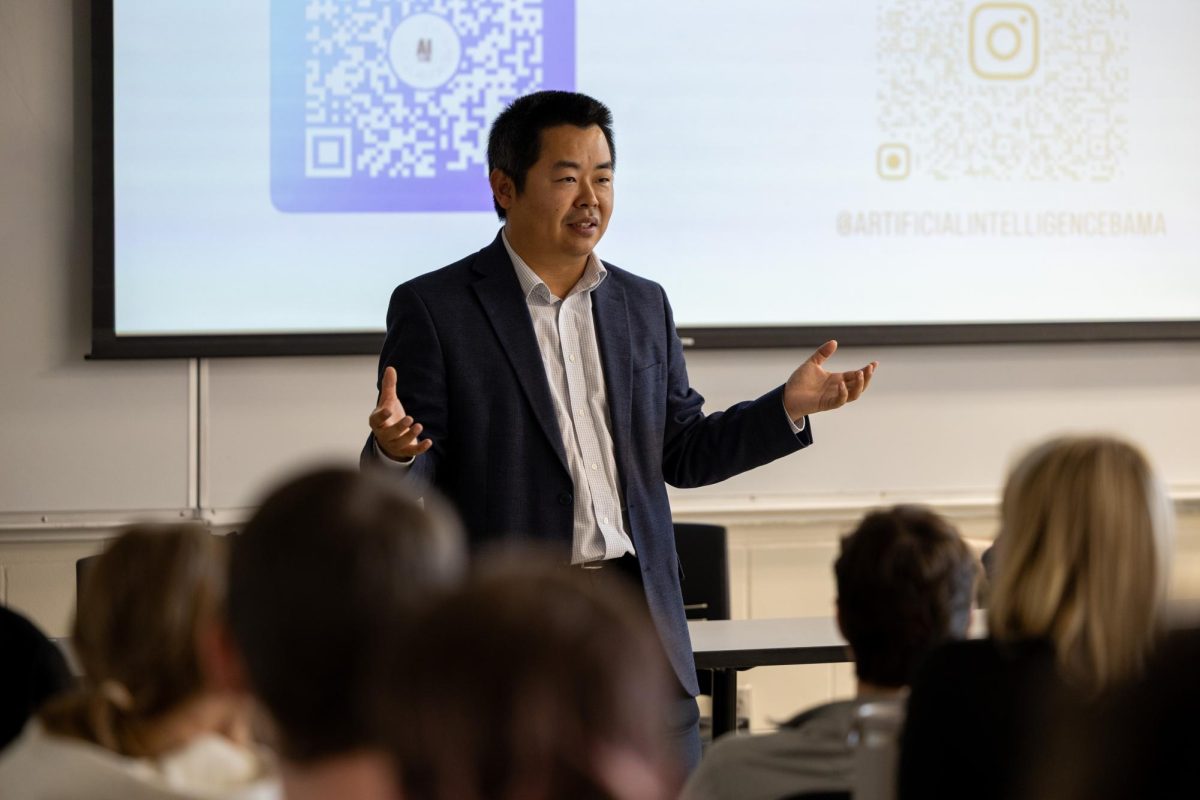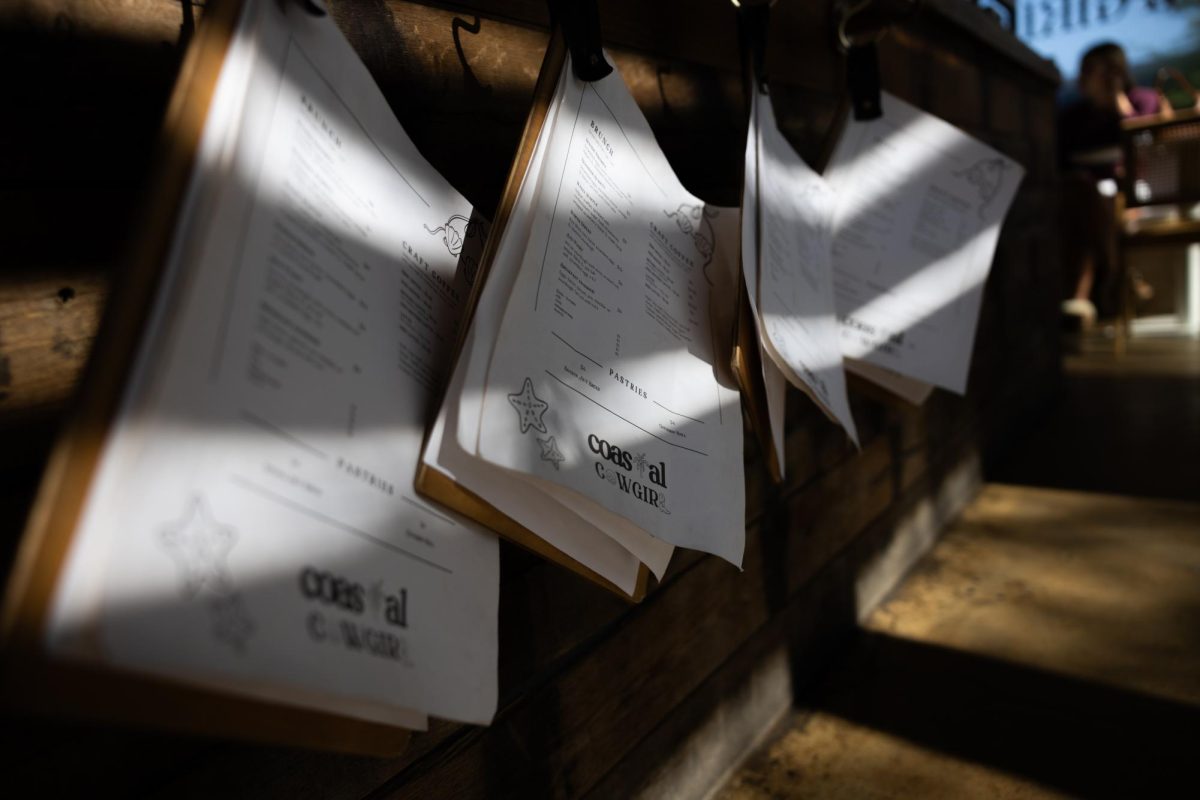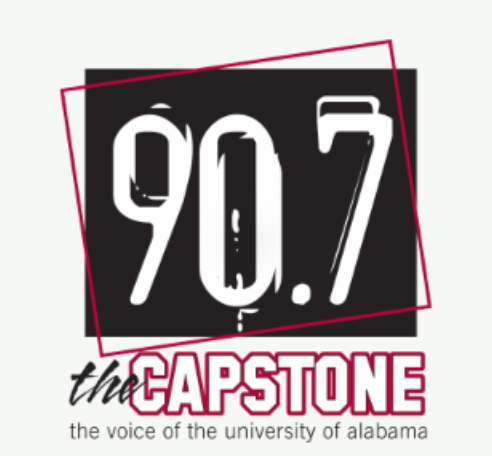The Alabama Center for the Advancement of Artificial Intelligence revived the UA AI Club for its first meeting since the pandemic on Thursday. Students gathered in a packed room in Gordon Palmer Hall to discuss recent achievements in technology and the newest ways to leverage AI in the professional sphere.
“It’s changed the game,” Andrew Hahn, a graduate student and member of the AI Club’s leadership team, said of AI. “Every single industry is going to change, and they’re all going to start utilizing it to do things faster, automation.”
AI has been the talk of the tech world ever since OpenAI’s consumer-oriented DALL-E image generation and ChatGPT-3 language processing models were released to the public, but the original iteration of the UA AI Club dates to before those models were released.
The creation of the UA AI Club coincided with the invention of transformers, code that allowed machine learning models to parse words in context. The UA AI Club Github shows how the club experimented with the code of machine learning models, using assets shared on the open-source machine learning hub TensorFlow.
The new UA AI Club, however, is still finding its footing in a world that has radically changed since its last iteration. The meeting began with Spence Hanegan, a sophomore majoring in computer science and the club’s president, introducing other members of the leadership team who shared AI news and invited other students to help rebuild the club.
“We want to pipeline professionalism for not only current learning AI but also for pushing you towards a future with AI and how it can help you in any career,” said club treasurer Julian Garcia, a junior majoring in aerospace engineering. “We want to have a collaborative environment where members share ideas, contribute to projects and drive innovation.”
Later, Jiaqi Gong, the club’s faculty advisor and director of the Alabama Center for the Advancement of AI, described to the club the recent developments in AI technology he viewed as transformational. Calculations that used to take place in the hundreds of thousands, he explained, are now taking place by the trillions with every search.
“I always have industry researchers come to me and say, ‘What is AI and how can I integrate it into my company?’” Jiaqi said. “This is the golden age for AI.”
Jiaqi also said that this window for growth in the field, which he estimated to be in the next five to 10 years, would be make or break for the future of the industry as a whole.
After Jiaqi’s presentation, the leadership team of the AI Club showed two examples of uses of the OpenAI application programming interface, a backend that allows programmers versed in Python to create their own commands for OpenAI’s tools.
The team showcased a program that automatically answered trivia questions in a spreadsheet and another program that searched for sources online and categorized them as relevant or irrelevant. Using these programs, power users can ask ChatGPT thousands of questions in the span of minutes without having to type a single word.
Hahn also emphasized that tools like ChatGPT are heavily dependent on user skill and often require prompting techniques to produce the right information.
“If you’re good, you can get ChatGPT to do it in one shot, complete your whole assignment,” Hahn said. Being capable of leveraging AI to complete menial tasks quickly will help to “stand out” and “create value.”
He also emphasized AI’s usage as a way to streamline traditional programming, claiming to have made his sample codes with AI assistance, although experts have warned that AI-generated code is less secure, less efficient and sometimes less correct. Some of this is related to AI “hallucinations,” which are a flaw inherent to the structure of programs like ChatGPT.
Hahn said that strategies to mitigate hallucinations, like retrieval-augmented generations, could assuage concerns about using ChatGPT to answer technical and safety questions. Although, he added that the topic should be explored further in future meetings.
The UA AI Club is planning to host weekly events going forward, and its next meeting will take place in the Northeast Medical Building on Thursday.
“You guys should all be interested in AI,” Hahn said. “No matter what your major is, whether it’s mechanical engineering or business, these new large language models are going to come in, and they’re going to change the industry.”









